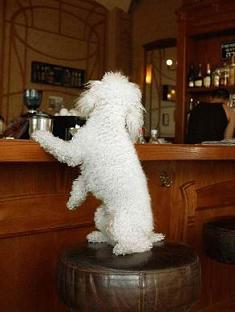
Updated Dec. 16, 2008
Part
1 Topics and Questions
For The IELTS Speaking Tests in Mainland China, Sept. 6 - Dec. 20, 2008
*******************************************************************
Summ
0. The four standard introductory questions.
1. Your Work or Your Studies
2. Your Home (Your Accommodation)
One of the three topics above is a
compulsory topic and you will be asked about 4 questions on this topic. You will
then be asked questions on two of the topics from below. (Again, about 4
questions per topic).
4. Birthdays
5. Evenings
7. Gardens
8. The Internet
9. Food
10. Music
12. Relaxing
13. Reading
14. Television
15. Weekends
16. Shopping
17. Names
18. Teachers
20. News (New)
21. Bicycles
22. Parties (New)
23. Visitors (New)
24. Swimming (New)
25. Holidays (New)
26. Gifts
*******************************************************************
Important Notes
The "new" topics actually started on August 16, three tests before the usual time for new Part 1 topics at the first test of September, Sept. 6 for this year. This means that you should be careful about doing the test in December because the new Part 1 questions that normally start in January might, instead, start in December. November might be safer! That is, November is more likely to have the topics on this page than the tests in December. (I think about one third of the Part 1 questions are changed when new questions are introduced.)
The letter, "N" after a question means that question is new, although the topic might not be new.
You should not assume that you know what the question is just because the question is similar to a question on this page. This is because some of the questions on this page might be inaccurate. So, listen carefully to the exact words of the question that the examiner asks.
For every topic listed here, the Part 1 questions that are reported on the internet will be added to this page only. (After December, they will be added to the page, 'All Part 1 Questions'.)
Many questions are not reported at all or are inaccurately reported so you should also read the questions for that same topic on this page: ALL PART 1 QUESTIONS because previously used Part 1 questions are frequently used. That page shows all the questions and topics that have been used in Part 1 since January 2006.
The list of Part 1 topics and questions for Sept - Dec, 2008 will not be complete until after we have had many tests. We might even still be discovering new Part 1 topics and questions towards the end of December. This means that you should return to this page whenever the page has been updated, (probably after each test).
Those topics that are labeled as "New" are topics and questions that have not been seen before within the past three years.
Some topics that are not labeled as "New" have new questions, even though the topic has been used before.
For almost every question here, you should add extra information after you have answered the basic question. You should consider these questions as basically invitations to give information, with the beginning of your answer directly answering the basic question.
(Possibly you don't need to give any extra information after answering this question: Do you work or are you a student? For that particular question, if you do give extra information, it might be best to make it rather short and general, although a lot of extra information might also be suitable.)
For example: Do you think the internet is a good thing? Don't just say, "Yes, I do." and then stop. You should answer by first saying, "Yes, I do." and then follow that with some examples of what you think are the good points about the internet.
You could answer that particular question with an answer such as, "Yes, I think it's mostly a good thing but I also think there are a few negative sides to it." And then explain what you mean by giving examples or by speaking more specifically.
Although some questions here have (Why?/Why not?) written after the questions, you should consider that every question requires you to answer 'why' or 'why not', or some similar extra piece of information if 'why' or 'why not' are not applicable to that question.
*******************************************************************
1. Your Work/Your Studies
Do you work or are you a student?
See also ALL_PART_1_QUESTIONS 1b. Your Work
General Description of Job
What
job (or, what work) do you do?
How
long have you been working? (Or: How long have you been doing this job?)
What
does your company do?
What
do you do in a typical day at work?
(Similar
to above) What are your responsibilities at work?
Feelings about the Job
Do
you like your job (or, your work)?
Do
you prefer your life now, as a working person, to the
life you had as a
student?
Do
you think your (school or) university education prepared you well for
the work you are doing now?
Would
you say it's an easy job?
What's
the most difficult part of your job?
Would
you recommend this job to other people?
Working with Others
Do
you need to work with (= co-operate with) other people at work? (teamwork
question)
Do
you like working with them?
Work Tools, Equipment
What tools or equipment do you use in your work? (Include information about how useful it is/they are.) N
Is it/are they very helpful to you? N
(Similar to above) Would you say it's/they're very useful? N
(Similar to above) How useful would you say it is/they are? N
What are your work plans for the future?
Are you planning to change your job? See Note
In the future, what changes do you think will take place in your industry?
Why are you taking the IELTS test?
See also ALL_PART_1_QUESTIONS 1a. Your Studies
Notes: For high school students or recent high school graduates who have not yet started university, the word "school" or "high school" will be used instead of "university". If you are no longer a student now and have not yet started to work, the questions will be about the last time you were a student, either high school or university and asked in the past tense.
General Description of Studies
What
subject are you studying?
Do
you think that's a difficult subject to study?
Why
did you choose to study that?
Do
you like your subject? (= your major = your subjects
if a high school student)
(For
high school students) What's your favourite subject at school? (Don't say
P.E.)
Study Place
Where
do you study (= what school/university do you attend)?
Why
did you choose that (particular) school/university?
What
do you think of your school/university?
(Similar
to above) What
do you think of the place where you are studying?
What
is the best thing about your university/school?
Length of Time as a Student
When did you start this course and when will you finish it?
(Similar to above) How long have you been doing this course?
(Similar
to above, for high school students) How many years have you spent in school?
(Possible question) What year are you in at school/university? * See Note
Life as a Student
Do
you like university life?
(Similar
to above) How do you like
university life? ( = How do you feel about life at university?)
In addition to gaining knowledge, what other ways have you benefited from your school/university experience?
Study Tools, Equipment, Facilities
What
"study tools" (or equipment) do you use? N
See Note
Do
you th
What facilities are there at your school/university to help you in your studies? N
Future
Do
you think the things you are studying now in school/university will prepare
you well for your future work?
What
are your future work plans? (after
you graduate)
When
you start working, do you think you will prefer that to being a student?
Why
are you taking the IELTS test?
What are your future study plans?
2. Your Home (Your Accommodation)
See also ALL_PART_1_QUESTIONS 2. Your Home (Your Accommodation)
Do
you live in a house or a flat?
Please
describe it.
Who
do you live with?
How do you like your flat/house? ( = How do you feel about your house/flat?)
What's your favourite room in your home?
Please
describe the room you live in.
Is
there anything on the walls of your home (or your room)? See Note
What
can you see when you look out the window of your room (or, the windows of
your home)?
(Your 'hometown' is the place where you grew up, not necessarily the place where you were born.)
See also ALL_PART_1_QUESTIONS 3. Your Hometown
Where do you live at the moment?
If Not Living in Your Hometown Now
How long have you been living there?
Do
you like _____? (The
place you are living in now)
General Information about Your Hometown
Where
is your hometown? (Or, what part of China do you come from?)
What
kind of place is your hometown?
Is that a big city or a small town (or, a village in the countryside)?
(Similar to above) How big is that place? *
What benefits are there to living in a big city?
(Similar
to above) Tell me something about your hometown.
Has
your hometown changed much in the past few years? (e.g. 20 years)
Feelings about Your Hometown
Do you like your hometown? (Why?/Why not?)
Compared to the past, would you say your hometown today is more suitable for living in, or less suitable?
Do
you think you'll always live there?
The Weather in Your Hometown
What's
the weather usually like in your hometown?
Has
the weather in your hometown changed much in recent years?
Notable Features of Your Hometown
What sorts of buildings are there in your hometown?
What's
the most attractive part of your hometown?
What
would you say is the best part of your hometown?
(Similar
to above) What would you say is the best thing about your hometown?
What's
the most famous thing about your hometown?
Do
people in China celebrate birthdays?
(Similar
to above)
Are people's birthdays very important in China?
How
do they celebrate birthdays?
(Similar
to above)
Do people in China do anything special to celebrate birthdays?
(Similar
to above) Nowadays,
how do young people in China celebrate their birthday?
Do
people in China have birthday parties?
How
do you like to celebrate your birthday?
What
did you do on your last birthday?
Do
you think it's important for people to celebrate birthdays?
Possibly the above question is this: Do you think it's important to remember people's birthdays?
Do you think it's important to give a special gift to someone on their birthday?
Are
birthdays more important for children or for adults?
(Similar to above) Do you think it's more important for children to celebrate birthdays than adults?


See also ALL_PART_1_QUESTIONS 35. Sport/Exercise
In the questions below, the word "sport" might be replaced by the word, "exercise" for some questions.
What
kind(s) of physical exercise do you do to keep fit?
Do
you use any equipment for this exercise (or sport)?
Do
you like any sports? (What sport?)
What
sports are most popular with young people today?
Do
you participate in any sports with your friends?
Did
you take part in any (organized) sporting activities in school?
Do
you think it's important to have P.E. classes (or sports classes) at school?
(Why?/Why not?)
What
are the benefits of exercise (or sport)?
(Similar
to above) Do you think physical activity is important? (Why?/Why not?)
Are
there any sports facilities near where you live? (for the public to use)
See also the Part 3 questions for Part 2 Topic # 142
Does
your family have a garden?
Do
many people in China have their own garden? (Don't forget, about 65% of
China's people live in the countryside!)
What do people in China use their gardens for? (What do people in China do in their gardens?)
If
someone has a private garden in China, do they usually prefer to grow
flowers or vegetables? (Why?)
Have
you ever grown anything? (in a garden, or possibly in a flower pot)
Do
Chinese people like growing flowers?
Do
you like growing flowers?
What
benefits do people get from gardens (or, from gardening)?
(Similar
to above) Why do many people like gardening?
See also the Part 3 questions for Part 2 Topic # 114.
Do
you ever use the internet? (= access the internet = go onto the internet =
log onto the internet)
How
(or, where) do you go onto the internet? (At school? At home? At an
internet cafe?)
When
did you first start using (or first learn to use) the internet?
How
did you learn to use the internet?
What do you think is the best way to learn about (or learn how to use) the internet?
Is
there anything you don't understand about the internet?
Do
you think the internet is a good thing?
Is there anything that's not so good about (or, on) the internet?
What
are the good and bad points about the internet?
(Similar to above) Is there anything you don't like about the internet?
How can people best make use of the internet?
Do
you think the use of the internet needs to be controlled?
How
can people learn things on the internet?
What
sorts of things can people learn on the internet?
What
do you think are the benefits of "e-learning"? (= studying online)

What's
your favourite food?
(Similar
to above) What sort(s) of food do you like? (Why?)
How
often do you eat that?
(Similar to above) When was the last time you ate that?
(Similar to above) When was the last time you ate 'junk food'?
Do you usually make that yourself or do you usually buy it?
Have
you always liked that food?
When
did you start to like that food?
What
food did you like (most) when you were a child?
Is
there any food that you liked when you were a child but you don't like now?
What
types of food do children generally like to eat?
Where
do you usually eat your meals?
(Similar
to above) Where do prefer to eat your meals?
Do
you know how to make (prepare) a meal?
(Similar
to above) Do you like cooking? (Or, Do you know how to cook?)
What
do you like to cook?
When
you were young, did you learn how to make a meal (= how to prepare food)?
Have
you ever thought about learning how to cook?

See
also ALL_PART_1_QUESTIONS 24. Music
Do
you often listen to music?
What's
your favourite type of music?
(Similar
to above) What kind of music do you like?
How
do you feel when you listen to this music?
When
did you start listening to this type of music?
Is
music very important to people in China?
(Similar
to above) What role does
music play in the cultural life of people (or, of society)?
How
does music affect (or influence) people?
Did you often listen to music when you were a child? (If yes, give details.)
What are some differences between the music you listened to as a child and the music you listen to now?
What
advantages do you think there are for a child to learn (to play) a musical
instrument? (= to study
music)
(Similar
to above) Why do some
parents want their children to learn (to play) a musical instrument?
See
also ALL_PART_1_QUESTIONS 49. Art/The Arts
See Note
Do
you like art? (If yes: What are some examples of the art that you like?)
What experience of art did you have when you were younger?
(Similar to above) Did you ever do any artwork when you were a child? See Note
What
kinds of art are you good at?
(Similar
to above) What kind of art
are you best at?
Do
you think art is an important part of life?
Which kind of art do you think is more important, the art we see in the cinema or the art we see in art galleries and museums? *
Are
there any museums or art galleries in your hometown?
Do people in China like visiting museums and art galleries?
(Similar
to above) Do you like visiting (or, do you ever visit) museums and art
galleries? See Note
Did
you ever go to art galleries or museums when you were a child?
(Similar
to above) Have you ever
visited an art gallery or museum?
(Possible
question) Do you think people should go to art galleries and museums? *
(Similar
to above) What effects do
museums and art galleries have on people (or, people's lives)?
(Similar
to above) Do you think
people can learn anything from art galleries and museums?
(Similar
to above) What can people
learn from art galleries and museums?
Do
you think going to museums and art galleries is beneficial for children? (
e.g., for their development)
Do
schools in China have excursions to museums?
(Similar to above) Do you think teachers should take their students on visits to museums?

See
also ALL_PART_1_QUESTIONS 21. Leisure Time & Relaxing
See Note about the pronunciation of, 'leisure'.
How
do you usually relax (in your spare time)?
(= What do you usually do to relax/for relaxation?)
(Similar
to above) What do you
usually do in
your free time?
(Similar
to above) Do
you have any hobbies?
(Similar
to above) What hobbies do you have?
What
do other people around you (= other people who you know) like to do in their
free time?
Do
you ever go out with your workmates/colleagues or classmates?
In
general, what activities do people in China do for relaxation?
Do
you think relaxing is important for people?
(Similar
to above) Why do people need to have some leisure time?
Do
you think modern people have enough time for relaxing?
How much time do you spend relaxing (or, on leisure activities)?
What
can people do to find more time for relaxing?
See
also ALL_PART_1_QUESTIONS 32. Reading
See Note
Do
you like reading?
What
kinds of books (or, what kinds of things) do you usually read?
How many hours a day would you say you spend on reading?
Where
do you usually read?
Since you started working, have you continued to read as much as you did when you were a student?
(Similar to above) When you start working, do you think you'll spend as much time reading as you do now? *
Did
you like reading when you were a child? (What did you read then?)
Do you think children like reading nowadays? (Why?/Why not?)
Do
you think children today should spend more time reading?
What
would you say is a suitable amount of time for children to spend reading
each day?
What
sorts of books do children (in China) like to read?
Do adults today like reading?
What kinds of books do average adults in China read?
Do you think adults should read more?
Would
you ever give a book as a gift to one of your friends?
See
also ALL_PART_1_QUESTIONS 38. Television and Radio
Do
you like watching TV?
What
types of TV programs do you (most) like to watch?
What's your favourite TV program? *
What
(type of) programs did you like to watch when you were a child? (Why?)
What was your favourite TV program when you were a child? *
Do
people in China watch any foreign TV programs?
(Similar
to above) Do people in China
(have the opportunity to) watch any English language (or, foreign) TV
programs? (Say what
programs.)
How
do they get these programs?
Do
you think English language programs are necessary? (Why?/Why not?)
Do
you think English language programs are useful? (Why?/Why not?)
(Similar
to above) Do you think
people can improve their English by watching these programs?
(Similar
to above) Do you think
watching these programs can help people learn English?
Do
you prefer to watch TV or listen to the radio? (Why?)
Would
you say entertainment is important for people?
See
also ALL_PART_1_QUESTIONS 42. Weekends
What
do you like to do on weekends?
Are weekends important to people?
(Similar
to above) Are weekends important to you? See
No
What
do people in China do on the weekends?
Do
you think people should be asked to work on weekends?
Do
you think people should be paid more money if they work on weekends (or
public holidays)?
Do
you think working people need to rest on weekends?
Which
weekend day do you like more, Saturday or Sunday?
What
do you usually do on that day?

See
also ALL_PART_1_QUESTIONS 34. Shopping
Do
you like (going) shopping? (Why?/Why not?)
Who
do you go shopping with?
Who
does the shopping in your family?
What
(kinds of things) do you usually buy when you go shopping?
What
are the most fashionable things to buy?
Is
there anything you don't like about going shopping?
What
kind of shops do you most like?
What
places for shopping in your hometown would you recommend to foreigners (or,
recommend to visitors to your hometown)?
How
has shopping in China changed in the past few years (e.g., 20 - 30 years)?
(Similar
to above) In your hometown, what has been the biggest change in shopping in
the past few years?
Have
any (new) shops recently opened near where you live? (If yes, what?)
Do
you think that some people spend too much time or money on shopping?
Why
do you think they do that?
Why do you think young people like shopping so much?
See
also ALL_PART_1_QUESTIONS 47. Names
Does
your name have any special meaning?
Is your surname very common in China?
Do
you like your name?
Would
you like to change your name? *
Do
people in China ever change their names?
What
name do people at home (your family members) call you?
Do
Chinese people attach a lot of importance to (their) names?
How
are babies given their names in China?
Is
there any special ceremony when babies are given their names?
Are
there any special names (or, special types of names) that Chinese parents
choose for their children?
In
China, are the names that people give their children today the same names
that people used many years ago?
Are there any names that are very commonly used?
Why
are some Chinese names very similar to each other?
See
also ALL_PART_1_QUESTIONS 48. Teachers
What's
your opinion of teachers?
Did
you like your primary school and high school teachers?
(Similar
to above) Who is (or, was) your
favourite teacher? (Why?)
Do
you think it's important to like your teachers?
Did
any teachers in your high school have a big influence on you?
Were
(are) your high school teachers very strict?
(Similar to above) Do you think teachers in China are very strict?
To be a teacher, what's the most important thing?
What
sort of personality do teachers need to have?
(Similar
to above) What sort of
character do teachers need to have?
What
kind of teacher do students most like?
(If
you had the opportunity) would you like to be a school teacher? (Why?/Why
not?)
See
also ALL_PART_1_QUESTIONS 22. Letters & Emails
Do you like writing to people?
How
often do you write an email or a letter?
Who
do you write to?
Do
you often write letters?
Who
do you write to? (by letter)
Which
do you prefer, to write a letter or write an email? (Why? Compare them.)
In general, what kind of letter or email do you find to be the most difficult to write?
When you are writing a letter (or email), how do you usually start it?
Which do you think is the more difficult, to write a letter or to write an email (or SMS)?
In what situations do you write to (or email) a friend?
What different types of letters or emails do you receive?
Which
do you prefer, to make a phone call or write an email? (Why?)
Do you like to receive letters and phone calls?
Which do you prefer, to receive letters (or, emails) or phone calls? (Why?)
20.
News
and Information (New)
What sort of information are you most interested in?
How do you usually find this information? N
How
do you usually get your news?
What
types of news do you like?
Which do you think is more important, domestic news or international news? N
Would
you say the news affects your life very much?
(Similar
to above) How do you think that being aware of the news can affect a
person's life?
Do
you think children like (= are interested in) the news? (Why?/Why not?)
Are
old people and young people interested in the same (kinds of) news?
(Why?/Why not?)
Do
you (often/ever) read newspapers?
Do
you think newspapers are important?
Besides
newspapers, what are some other ways people get news?
http://www.youtube.com/watch?v=wgS8n-AqDmo
See
also ALL_PART_1_QUESTIONS 4. Bicycles
Do
you ever ride a bicycle?
(Similar
to above) Do you like riding a bicycle?
What
do you use a bicycle for?
How
old were you when you first learned to ride a bicycle?
Why
do children enjoy riding bicycles?
Are
bicycles popular in China? (or, in your hometown)
What are the reasons why people ride bicycles?
Would you say it's safe to ride a bicycle in the city (or, in China)?
Has
the number of bicycle riders in China changed much in the past few years?
Do you think the number of people using bicycles (in your hometown/country) will change in the future?

Do you like (to go to) parties? (Why?/Why not?) N
Do
most Chinese people like parties?
Why do some people dislike parties? N
Do you prefer family parties or parties with friends? N
When
you go to a party, what do you usually do?
(Similar to above) What do you do when you get together with your friends? N
When
friends gather together do they do the same things that family groups do?
Who
do you think enjoys parties more, old(er) people or young people? N
In
China, do old(er) people and young people do the same sorts of things when
they get together on social occasions?

Do
you like visitors coming to your home?
How often do visitors come to your home? N
When do visitors come to your home?
When someone visits you, how do you usually show hospitality (or, entertain them)? N
(Similar to above) When (you know) people are coming to visit you, what preparations do you make? N
Do you like to visit other people? N

Do you like swimming? N
Where
do (or can) people go swimming in your hometown (or, near your home)?
Is swimming very popular in China? N
Why
do many people like swimming?
What do you think are the benefits of swimming (or, the benefits of knowing how to swim)? N
(Actually, the topic was new in May but was previously combined with the 'Relaxing' topic because it wasn't obvious that it was a separate topic.)
Here, the meaning of 'holiday' is: 假日= "vacation"
How
important are holidays to you?
How
do people in China spend their holidays?
What did you do in your last holidays?
Is there anything you dislike doing during holidays?
Do
you think it's important for people to have holidays?
Do you think we have enough holiday time (or should people's holidays be longer)?
Do
you think it's reasonable for an employer to ask his or her employees to
work in their rest time? (休息时间)
See
also ALL_PART_1_QUESTIONS 19. Gifts
What sorts of things do people in China usually give as gifts? See Note
What was the last gift you received?
When do people in China give gifts?
Do you think it's easy to choose what to give other people?
Do you think it's important to give expensive gifts?
Have you ever given someone a gift you made yourself?